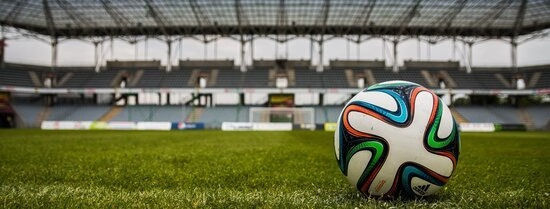Poland is a huge football country with millions of fans: football on television is wildly popular there. But football also acts as a place where meaning is constantly - often unconsciously, but for a large audience - assigned to racial and ethnic diversity. Arne van Lienden examines how this happens in his thesis, titled "Between the lines: Discursive (re)constructions of race/ethnicity in Polish televised football", which he defends on Thursday 14 March 2024. His research is part of the NWO-funded research project "How racist is televised football and do audiences react?" and is being conducted under the supervision of Prof Jacco van Sterkenburg and Melodine Sommier (University of Jyväskylä).
Stereotypes
Arnes' research shows that footballers who are considered black in Polish society are highly stereotyped. The predominantly white Polish viewers and producers mainly emphasise their physical qualities, which is consistent with an - incorrect - narrative in which black athletes are biologically considered to be physically superior. This again has its origins in the colonial era, when black people were often portrayed as mentally incompetent but physically superior, and thus fit for physical labour.
The inconspicuous norm
Male footballers who would be described as white are less 'visible' on television. This is because in wider Polish (and European) society, they are often seen as the inconspicuous norm. This makes it difficult for white people to understand their own identity in 'racial' terms and also complicates the fight against racism in society.
In other words, football on television in Poland reproduces ideas about race and ethnicity that often also circulate in wider society. These ideas cannot be separated from broader discussions about other social identity dimensions, such as gender, nationality and social class.
Implicit racism in society
The study contains some surprising findings. First, there is a persistent idea in Poland that racism and other vestiges of colonial ideas are not a problem. This is mainly because Poland does not have a colonial past, like many Western European countries. But implicit racism also seems to be a daily issue in Polish society. Indeed, Arne shows that racialised associations between being black and physical strength also occur in Polish popular media, alongside other stereotypical representations about the racial/ethnicity of male footballers.
This is an important finding, as it may refute the common idea that Poland is somewhat exceptional with regard to racism, and that racism would only be an expression of far-right groups. So, as is often the case in Western Europe, ideas about racial differences in Poland are told in seemingly 'innocent' and 'neutral' media.
Belief in one's own objectivity
Second, it appears that almost all journalists and commentators interviewed are convinced that stereotyping behaviour is the fault of other commentators and journalists. In general, they strongly believe in their own objectivity in their work and see clickbait websites and ill-prepared former footballers working as analysts as the biggest 'perpetrators' of stereotyping.
This finding shows how difficult it is sometimes to counter everyday and implicit racism in society. There is no recognition that certain ideas about racial and ethnic differences are implicitly and unconsciously part of how we see social groups in society, and thus in football media.
Between the lines
The subject of Arne's research is not just limited to Poland, but deals with a broader social discussion about racism in other countries too. Both in sport and in society in general. In recent years, we have seen racist incidents on football pitches across Europe, which received a lot of media attention and were followed by many initiatives to eradicate it.
What is often overlooked is that there is a lot of unspoken racism and ideas about 'natural' differences between people are also expressed between the lines by, for example, journalists and fans who do not consider themselves racist. Arne tries to show that there is a link between both explicit and implicit forms of racism. To make football a more progressive and equal environment, it is essential to raise awareness about how implicit racism is deeply woven into European societies.
- PhD student

